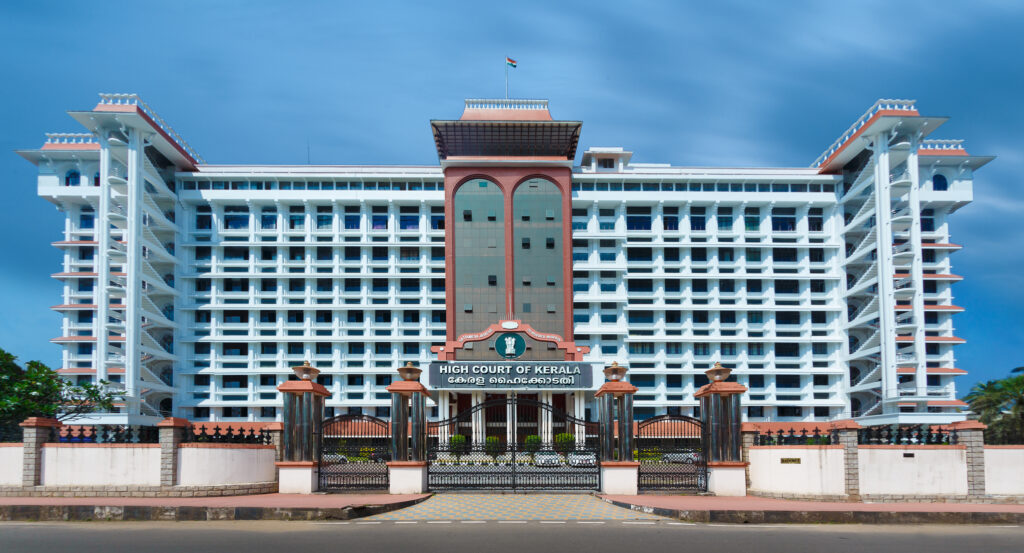The Kerala High Court stated that it is surprising that most ICC reports in PoSH cases support the institutions involved. These reports cannot override the records of prosecution.

The Kerala High Court has raised concerns about the troubling reality that most ICC reports in PoSH cases tend to be one-sided and biased, often favoring the institutions involved. This came to light during a case involving a College Principal accused of sexual harassment by a female staff member. The accused filed a Criminal Miscellaneous Case under Section 528 of the Bharatiya Nagarik Suraksha Sanhita, 2023 (BNSS) to dismiss the FIR, final report, and ongoing proceedings in the Judicial First Class Magistrate Court. Justice A. Badharudeen, in a Single-Judge Bench, stated, “It is alarming that most ICC reports I have seen are one-sided and biased, supporting the institutions, which raises serious questions about their reliability and the need for careful examination.”
The prosecution claimed that the accused, who is the Principal of S.N College, made inappropriate comments and sought sexual favors from the complainant. It was alleged that he pressured her to comply to avoid negative actions like memos, transfers, or suspensions. Additionally, he reportedly made defamatory statements about her in staff and PTA meetings and yelled at her during one of these meetings. These allegations formed the basis for charges under Sections 354-A, 354-D, and 509 of the Indian Penal Code (IPC) and Section 119(A) of the Kerala Police Act (K.P Act).
The petitioner’s lawyer argued for dismissing the entire case, heavily relying on the Internal Complaints Committee (ICC) report, which stated that the allegations were false. However, the Public Prosecutor countered that the victim’s statement was not included in the ICC report, leading to a one-sided conclusion. The prosecutor highlighted that both the victim’s statement and witness testimonies supported the prosecution’s claims, indicating that there were valid charges. The Bench carefully reviewed the complainant’s allegations and her previous complaints, noting that several College Professors backed her case. The Bench concluded that the prosecution’s allegations were clearly established.
A key issue for consideration was whether the entire criminal proceedings could be dismissed under Section 528 of BNSS when the ICC report, according to the Sexual Harassment of Women at Workplace (Prevention, Prohibition and Redressal) Act, 2013 (PoSH Act), contradicted the prosecution’s case. The Bench pointed out that the PoSH Act includes various measures to address workplace harassment and that the ICC can suggest actions, including criminal prosecution. The Bench clarified that if the aggrieved person files a complaint with the police, the police must register the case, investigate, and submit a final report if they find evidence of the alleged crimes. In this situation, the ICC’s findings do not affect the prosecution’s case.
The High Court stated that the ICC report is not the final authority regarding the allegations made to the police about workplace incidents that led to a registered crime and investigation. The court noted that the ICC cleared the accused by asking unclear questions and getting their responses, without taking the victim’s statement, who was genuinely affected. The Bench remarked, “I do not believe that the ICC report, which did not include the victim’s statement, can override the prosecution records.” Consequently, the court dismissed the Criminal Miscellaneous Case, emphasizing that a criminal case can only be dismissed if the prosecution’s claims do not show a clear case. If the victim’s and witnesses’ statements support the prosecution, any attempt to dismiss the case would fail.
Cause Title: Amjith v. State Of Kerala [Neutral Citation:2024:KER:84389]
Appearance:
Petitioner: Advocates Sreekanth S . Nair & Sandeep P Johnson
Respondent: Public Prosecutor M P Prasanth







